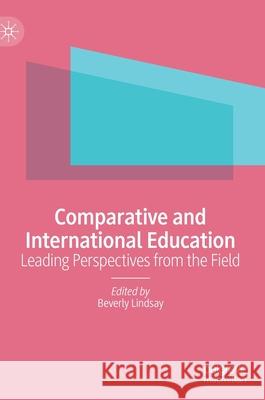Comparative and International Education: Leading Perspectives from the Field » książka
topmenu
Comparative and International Education: Leading Perspectives from the Field
ISBN-13: 9783030642891 / Angielski / Twarda / 2021 / 250 str.
Kategorie:
Kategorie BISAC:
Wydawca:
Palgrave MacMillan
Język:
Angielski
ISBN-13:
9783030642891
Rok wydania:
2021
Wydanie:
2021
Ilość stron:
250
Waga:
0.49 kg
Wymiary:
21.01 x 14.81 x 1.75
Oprawa:
Twarda
Wolumenów:
01
Dodatkowe informacje:
Wydanie ilustrowane











